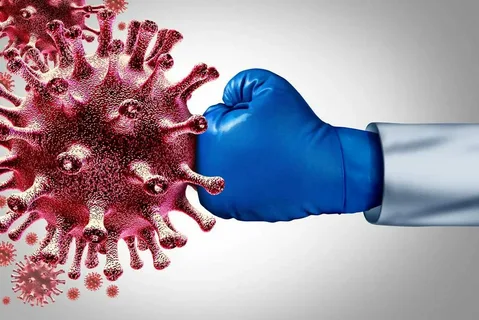The COVID-19 pandemic has been a catalyst for innovation in many areas of science and technology, with artificial intelligence (AI) emerging as a particularly powerful tool in the fight against the virus. As the world continues to grapple with the emergence of new COVID-19 variants, AI is playing an increasingly critical role in variant research, helping scientists to understand, predict, and mitigate the impacts of these mutations. This article explores the ways in which AI is accelerating COVID-19 variant research and the potential implications for public health.
Understanding COVID-19 Variants
COVID-19 variants arise when the SARS-CoV-2 virus, which causes the disease, undergoes mutations. These mutations can alter the virus’s properties, affecting its transmissibility, virulence, and resistance to vaccines or treatments. Identifying and understanding these variants is crucial for controlling the pandemic and preventing further outbreaks.

AI in Genomic Sequencing
One of the primary ways AI is accelerating COVID-19 variant research is through genomic sequencing. AI algorithms can analyze vast amounts of genomic data more quickly and accurately than traditional methods. Machine learning models, for instance, can identify patterns in genetic sequences that may indicate the emergence of a new variant. This allows researchers to detect variants earlier and understand their potential impact on public health.
AI-powered tools are also used to predict how mutations might affect the structure and function of the virus. By simulating the virus’s behavior, AI can help scientists anticipate how certain mutations might influence the virus’s ability to spread or evade the immune system. This predictive capability is invaluable for developing strategies to counteract the effects of new variants.
Enhancing Vaccine Development
AI is also transforming the way vaccines are developed and optimized in response to COVID-19 variants. Traditional vaccine development can be a lengthy process, but AI can significantly reduce the time required to design and test new vaccines. By analyzing data from existing vaccines and variants, AI can identify which components of the virus are most likely to trigger a strong immune response. This information can be used to design vaccines that are more effective against emerging variants.
Moreover, AI can assist in optimizing vaccine distribution by predicting which regions are at higher risk of variant outbreaks. This ensures that vaccines are delivered where they are needed most, maximizing their impact on public health.

Accelerating Drug Discovery
In addition to vaccines, AI is accelerating the discovery of antiviral drugs that can treat COVID-19 variants. AI algorithms can rapidly screen millions of compounds to identify those that are most likely to be effective against the virus. This process, known as in silico drug discovery, drastically reduces the time and cost associated with traditional drug development.
AI can also be used to repurpose existing drugs for use against COVID-19 variants. By analyzing data from clinical trials and real-world patient outcomes, AI can identify drugs that may be effective in treating new variants. This approach allows for a faster response to emerging threats, as repurposed drugs have already been approved for use and have established safety profiles.
Predicting Variant Spread
AI’s ability to process and analyze large datasets makes it an invaluable tool for predicting the spread of COVID-19 variants. By integrating data from genomic sequencing, epidemiological studies, and social behavior, AI models can forecast how and where variants are likely to spread. These predictions can inform public health strategies, such as targeted lockdowns or travel restrictions, to prevent widespread transmission.
AI can also help identify factors that contribute to the emergence of new variants, such as population density, vaccination rates, and public compliance with health measures. By understanding these factors, policymakers can implement more effective interventions to control the spread of the virus.

Ethical Considerations and Challenges
While AI offers significant benefits in COVID-19 variant research, it also raises ethical considerations and challenges. The use of AI in health research must be guided by principles of transparency, accountability, and fairness. Ensuring that AI models are free from bias and that their predictions are reliable is crucial for maintaining public trust.
Data privacy is another important consideration. The use of AI in variant research often involves the collection and analysis of sensitive health data. It is essential to have robust data protection measures in place to safeguard individuals’ privacy while enabling the effective use of AI.
The Future of AI in Pandemic Response
The integration of AI into COVID-19 variant research represents a significant advancement in our ability to respond to pandemics. As AI technology continues to evolve, its applications in health research are likely to expand, offering new opportunities to improve public health outcomes.
AI has the potential to revolutionize not only how we respond to COVID-19 but also how we prepare for future pandemics. By investing in AI research and infrastructure, we can build a more resilient global health system capable of rapidly identifying and responding to emerging threats.
Conclusion
AI is an indispensable tool in the ongoing battle against COVID-19 and its variants. By enhancing our ability to sequence genomes, develop vaccines, discover drugs, and predict variant spread, AI is accelerating COVID-19 variant research and improving our capacity to manage the pandemic. As we continue to harness the power of AI, it is essential to address the ethical and practical challenges associated with its use to ensure that its benefits are realized equitably and responsibly. Through continued innovation and collaboration, AI can help us navigate the complexities of COVID-19 and build a healthier, more












